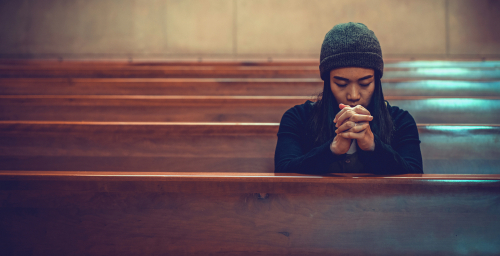Jesus Christ never promised it would be easy to follow him. In fact, just the opposite. He said the path would be narrow, that he was sending us out like sheep among wolves.
The first Christians took this teaching to heart. “It is necessary for us to undergo many hardships to enter the kingdom of God,” they would say.
So far, during my columns in Lent, I have spoken about the cardinal virtues of prudence and justice.
This week we turn to fortitude, the moral virtue that strengthens our souls so that we are capable of meeting our fears, overcoming our weariness, and making the sacrifices that must be made for us to carry out our Christian duties in the face of hardships and opposition.
Several years ago I wrote a book about fortitude in the priesthood, called “Men of Brave Heart” (Our Sunday Visitor, 2009). I am convinced that this is a virtue that all of us must cultivate in a world that is often opposed to our Christian values.
Jesus said that the world would hate Christians, just as the world hated him.
Millions today still face hatred expressed in violence, persecution, martyrdom.
In our secular society, hatred is less dramatic, but no less real. Our “martyrdom” can often take the form of being mocked or marginalized socially and politically. Christians cannot work in certain professions or carry out certain ministries without being intimidated or facing moral conflicts because of their beliefs.
In our daily lives, we need fortitude to stand up for Jesus Christ and the values of his Gospel, to fight for what is true and good in society, to go against the grain of a culture that denies the sanctity and dignity of human life.
Having fortitude does not mean that we have no fear.
It is natural to be afraid when we are threatened with injury or evil, or “lesser” fears like the fear of being embarrassed or humiliated or losing our livelihoods or professional standing for living the Gospel.
Fortitude does not take away these fears, but fortitude helps us not to be ruled by fear — not to allow fear to cause us to do something wrong or to prevent us from doing what is right.
Through fortitude we can resist temptations and overcome our fears, and we can have the courage to seek God’s will before all else.
We exercise fortitude by an act of the will. We may not think we have the strength. And that is absolutely true, we do not.
To practice fortitude means we need humility, knowing that our strength lies in the Lord. Without him we can do nothing. But through his grace, he will empower us with the strength for everything.
Jesus is our model in fortitude as he is in every other virtue. In his humanity he suffered agonizing fear in the Garden of Gethsemane, but he offered himself to God: “Father, if you are willing, take this cup away from me; but not my will, but yours be done.”
Following our Lord’s example of fortitude means that when we face struggles and trials, we need to ask God for his grace and we need to make up our minds to do what is right, despite our fears.
To grow in this virtue, the spiritual masters encourage us to reflect often on Jesus’ passion and on the sorrows of the Blessed Virgin Mary. These give us concrete examples and inspiration to draw from as we try to stay firm and resolved in seeking God’s will.
As with all the virtues, fortitude grows by practice.
If we think about it, we will find opportunities every day to make little acts of courage: defending the Church when we hear her being criticized or ridiculed, refusing to engage in gossip, speaking up when we see something that is unethical or not right in our workplace or in our communities.
Of course, our acts of fortitude must always be informed by prudence. We want to show our bravery always in ways that are charitable and effective in bringing people closer to God.
We grow in fortitude also through practicing self-denial and learning to accept the little irritations, inconveniences, and sufferings we experience every day, from aches and pains, to sickness and discomforts, to feelings of being insulted or not appreciated.
God wants to purify and strengthen us through these experiences, so we need to pray for the grace to receive these little trials without complaining or bitterness.
We need to pray every day that God will increase our courage and help us to be courageous in his service, especially when things are hard. If we do, in time, we can know what the saints know: that God’s grace is sufficient for us in our weakness, and that we can conquer through Jesus who loves us.
Pray for me and I will pray for you.
And let us ask our Blessed Mother Mary to help us grow in virtue, as we continue on our Lenten journey.

